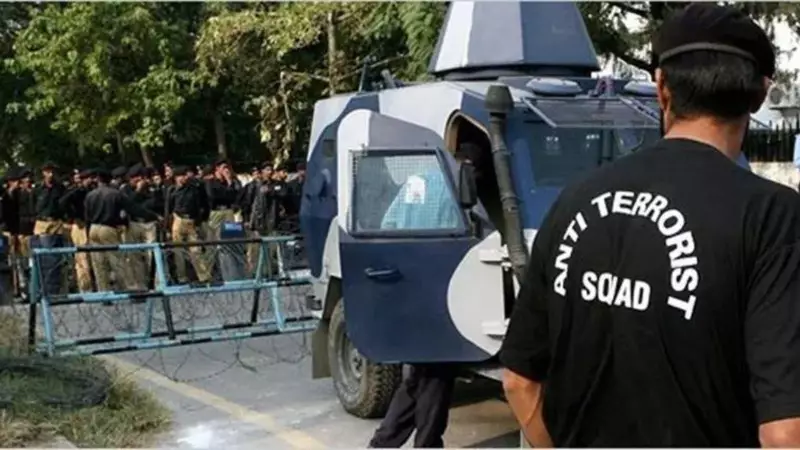
Black Flag and Digital Evidence Uncovered in Failed Ricin Terror Plot
The Gujarat Anti-Terrorist Squad (ATS) has made significant discoveries in their investigation of a failed terror plot involving the deadly chemical agent Ricin. During searches at the Lakhimpur Kheri residence of 23-year-old Mohammad Suhail Mohammad Saleem Khan, authorities recovered a black flag with Arabic inscriptions and digital literature about maintaining anonymity.
Evidence Points to Terrorist Inspiration
The black flag, featuring four lines of white Arabic text on a black background, went viral on social media with users claiming it resembled flags used by terrorist organizations. While the Gujarat ATS hasn't officially confirmed the trio's connection to any major terrorist group, sources revealed the flag relates to religious beliefs about "ghazwa-e-hind" (battle in the Indian subcontinent), a concept frequently invoked by multiple terror groups.
Investigators also found virtual flags used as mastheads on social media accounts of main accused Dr Ahmed Mohiyuddin Saiyed. The ATS mentioned that Saiyed's handler, Abu Khadija from Afghanistan, is believed to be associated with Islamic State Khorasan Province (ISKP), a Central Asian branch of ISIS.
Digital Literature and Security Measures
Beyond the physical evidence, the ATS uncovered digital literature including documents titled "How to Stay Anonymous" and "Security and intelligence course by a mujahid brother Abu Abdullah bin Adam." According to ATS sources, this material had been sent to Saiyed by his handler specifically for tips on avoiding detection by intelligence and law enforcement agencies.
The investigation has also reviewed CCTV footage showing Saiyed's movements around Hotel Grand Ambience in Ahmedabad's Mirzapur area before his arrest on November 8.
Ricin Investigation Progress
The Forensic Science Laboratory (FSL) in Gujarat continues to analyze the chemical evidence, though officials emphasize they want to be completely sure of the makeup and potential of the seized materials. While no actual Castor Beans were found at Saiyed's Hyderabad residence, investigators discovered several kilograms of Castor Beans mash - the leftover waste after oil extraction that can be developed into Ricin.
Ricin is considered particularly dangerous as there is currently no antidote available worldwide. The toxin is listed in Schedule-1 of the Chemical Weapons Convention (CWC) by the Organisation for the Prohibition of Chemical Weapons (OPCW).
During Saiyed's arrest, the ATS seized 4 liters of Castor Oil from his vehicle, which sources indicate came from 1.5 kg of Castor Beans, with the corresponding waste mash recovered from his home.
Case Timeline and Additional Charges
The Gujarat ATS arrested three individuals on November 8: Dr Ahmed Mohiyuddin Saiyed, Azad Suleman Sheikh (20, a tailor from Shamli), and Mohammad Suhail Mohammad Saleem Khan from Lakhimpur Kheri. All face charges under the Unlawful Activities (Prevention) Act (UAPA), the Bharatiya Nyaya Sanhita, and the Arms Act.
Additional seizures from the accused include:
- Two Glock pistols
- One Beretta pistol
- 30 live cartridges
- 4 liters of castor oil in a 10-liter plastic container
Sheikh and Khan are accused of receiving weapons from Pakistan and conducting reconnaissance at potential attack sites, including:
- The RSS office in Lucknow
- The Azadpur vegetable market in Delhi
- The Naroda fruit market in Ahmedabad
In a recent development, main accused Saiyed was injured on November 18 during a violent altercation with three other undertrial prisoners just 12 hours after being sent to judicial custody at Sabarmati Central Jail.
The investigation continues as authorities work to determine the full scope of the planned attacks and any additional connections to terrorist networks.





